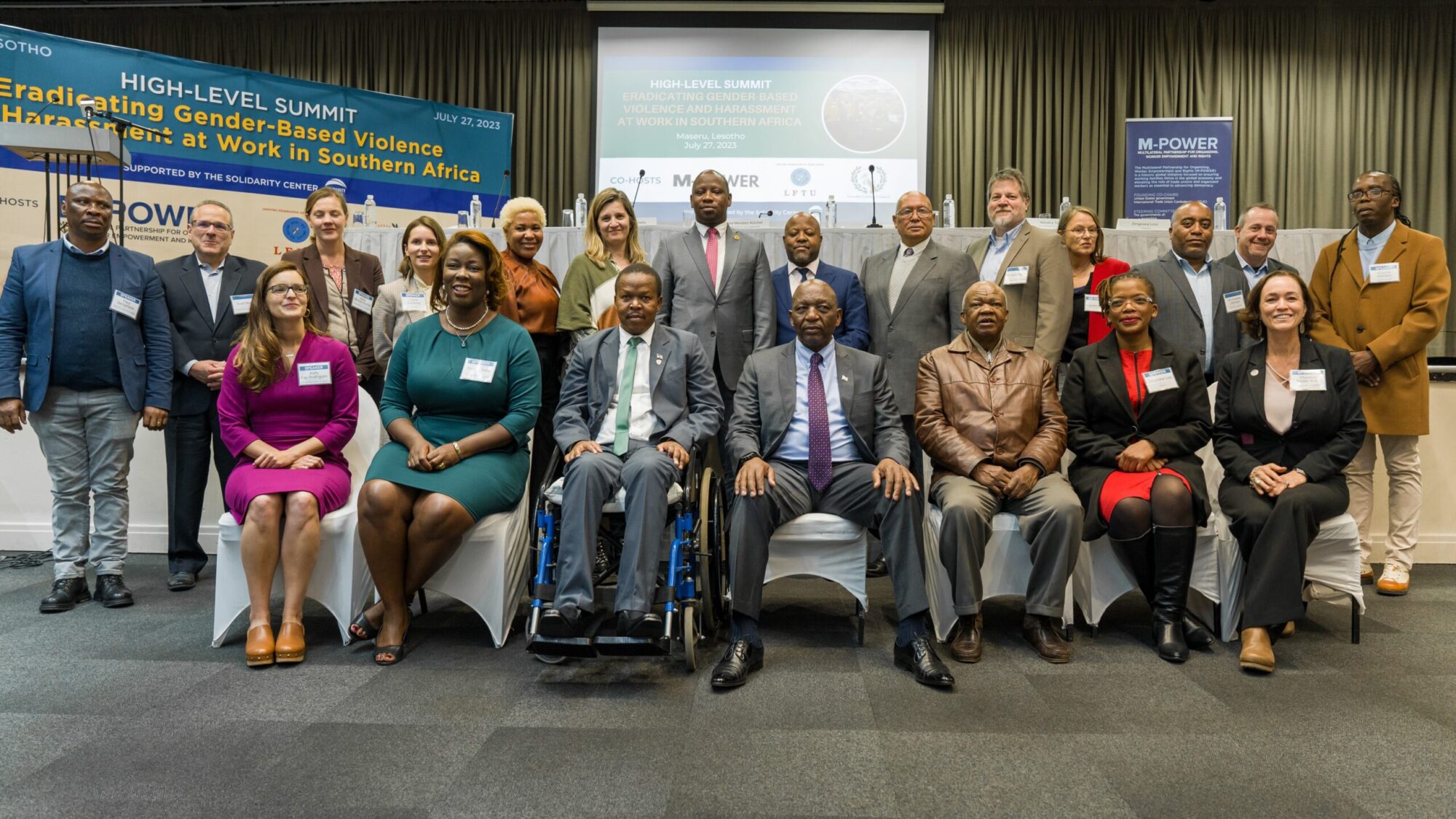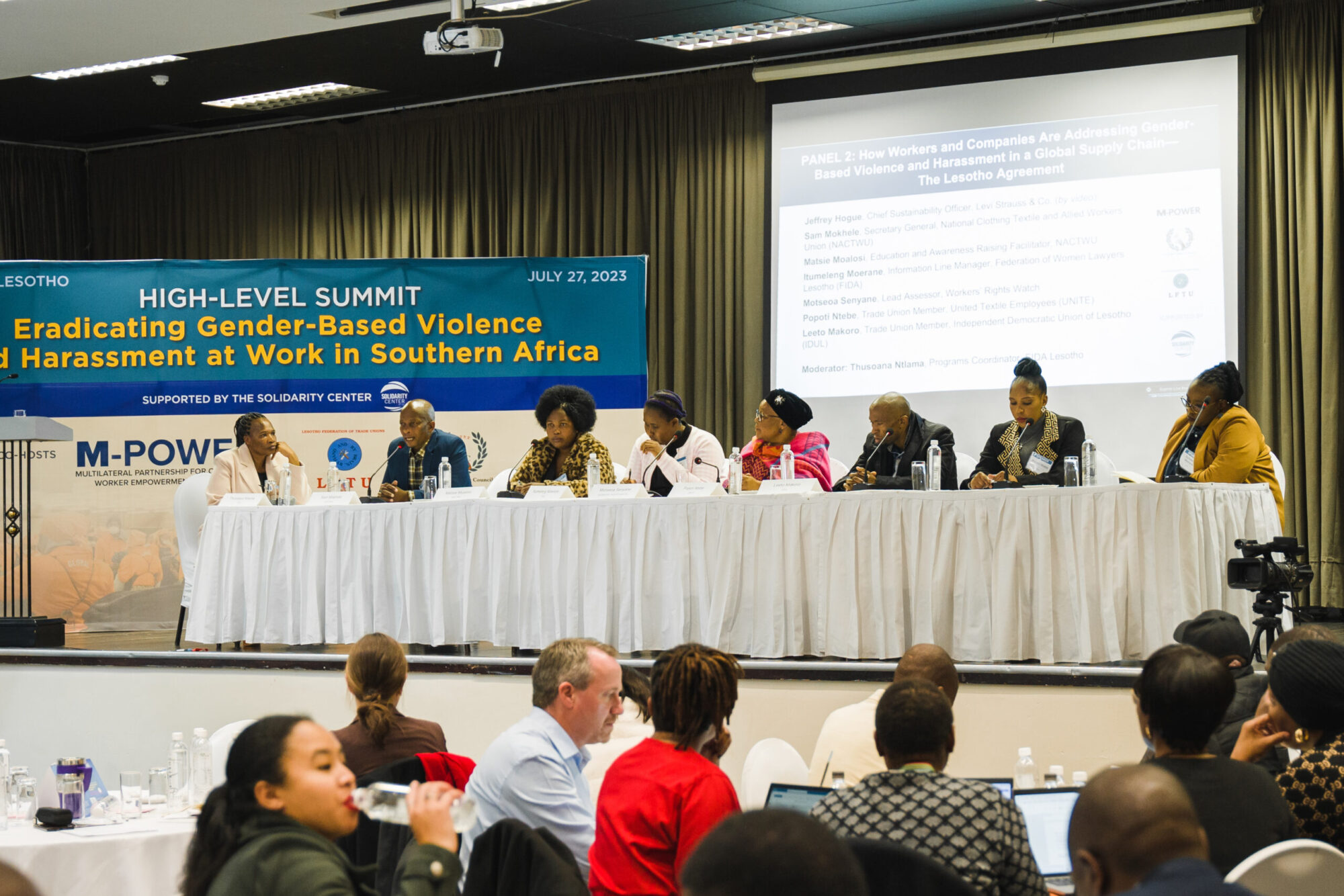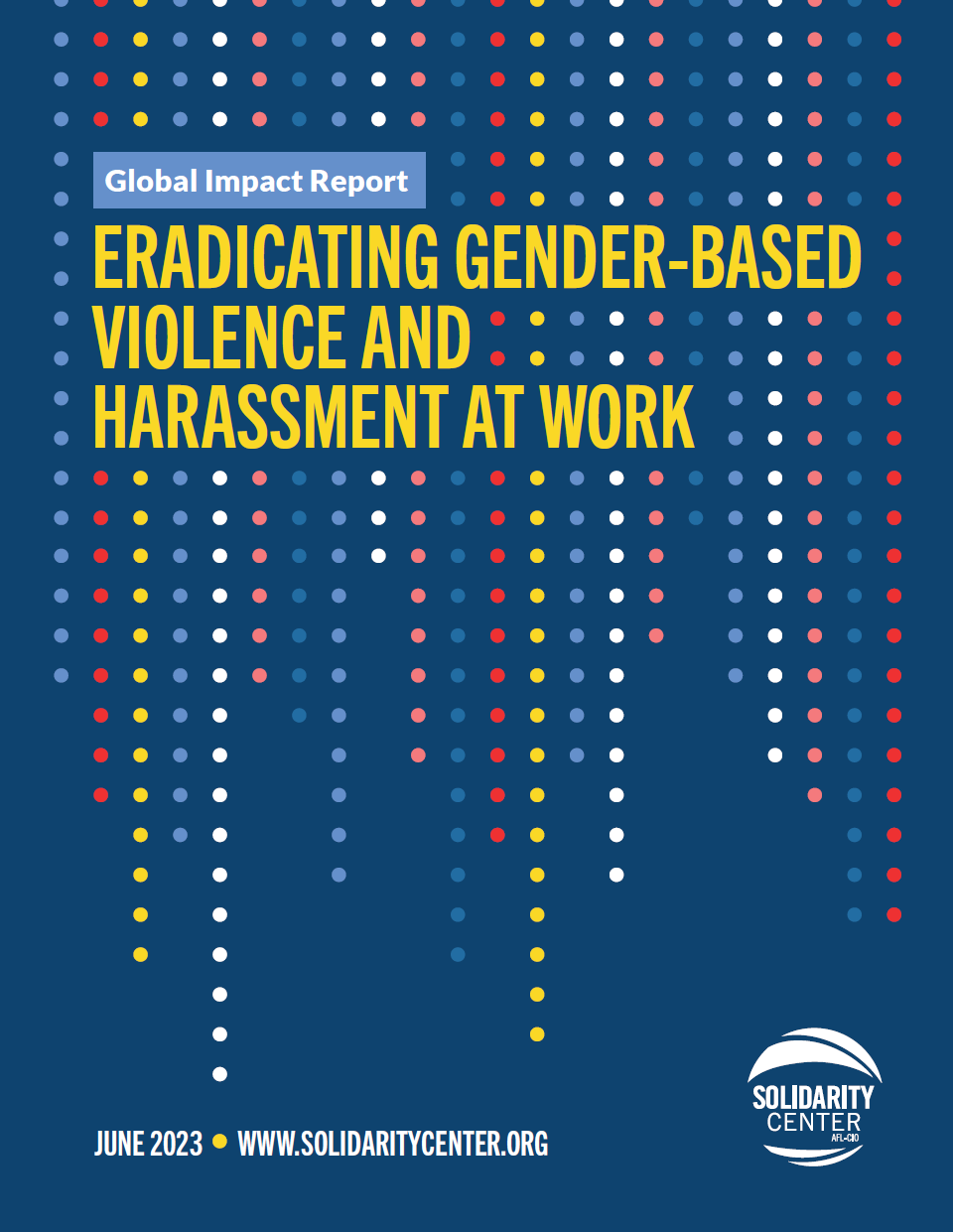Millions of workers—most of them women—face intimidation, humiliation, physical and verbal assault, and worse on the job. A July 27, 2023, international summit in southern Africa gathered representatives from the governments of Argentina, Canada, Germany, Lesotho,...
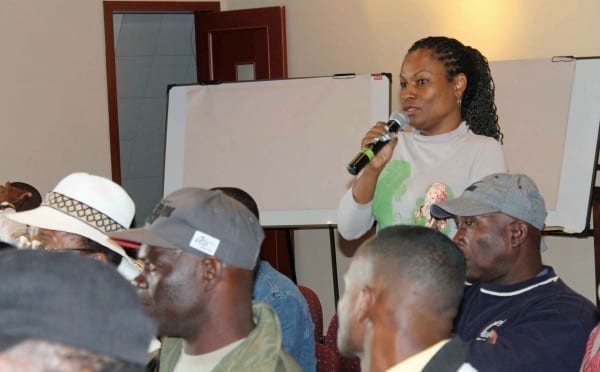
The Solidarity Center supported the development of the Afro-Colombian Labor Council, the first national organization in Colombia dedicated to improving the working conditions of Afro-descendants. Credit: Solidarity Center/Rhett Doumitt
The Solidarity Center engages with unions and their allies through an analysis and practice of equality, radical inclusion and intersectionality that is explicitly feminist, anti-racist, pro-equality, pro-worker, pro-migrant and class conscious.
The Solidarity Center designs and implements strategies to confront the multiple and intersecting forms of oppression that contribute to economic structures in which women and other groups of workers are devalued and excluded from economic and social equality. This requires a conscious effort to examine how oppressive forces play out throughout the global labor movement with a commitment to dismantle these systems. Explicit in this work is the understanding that the agency and leadership of the most marginalized workers are key components of decent work and economic justice for all.
The Solidarity Center has assisted unions and their allies in countries such as Cambodia, Colombia, Georgia, Honduras, Indonesia, Kyrgyzstan, Morocco, Nigeria, Nicaragua, South Africa and Tunisia to ensure meaningful participation of historically excluded and marginalized workers in unions and other democratic structures.
See related factsheets, videos and reports.
In Morocco, the Solidarity Center supported a multi-year effort to build women worker power and gender equality which led to the inclusion of women workers during negotiations for the first collective bargaining agreement in the informal agriculture sector. In Colombia, the Solidarity Center supported the development of the first national organization dedicated to improving the working conditions of Afro-Colombians.
In Kyrgyzstan, Morocco and Tunisia, Solidarity Center is assisting in strengthening union efforts to promote inclusion of individuals with disabilities. In Nicaragua, Solidarity Center supports domestic workers as they address inclusion of LGBTQI union members to ensure they can represent themselves, articulate their priorities and increase their leadership opportunities and visibility.
The Solidarity Center:
- Conducts research and awareness-raising to challenge systems of oppression and inform inclusive approaches to building worker power across social identities at all levels
- Supports representative, inclusive leadership in our partner organizations
- Engages in cross-movement work to combat tools of oppression that impact women, including gender-based violence and harassment at work
- Brings together unions and community groups to identify shared socioeconomic struggles, analyzes how those struggles are linked to systemic racism and implements organizing, legal and advocacy strategies to collectively overcome the oppression that entraps workers in poverty
- Advocates for economic policies that uproot systemic discrimination and exploitation in labor markets.
M-POWER SUMMIT: Program to End Violence, Harassment Changing the Dynamic in Lesotho

/
Global Impact report: Eradicating Gender-Based Violence and Harassment at Work
The Solidarity Center Global Impact report highlights the Solidarity Center's support of unions and civil society organizations in ending gender-based violence (GBVH) at work and showcases key outcomes, including a landmark agreement to address GBVH in Lesotho garment...
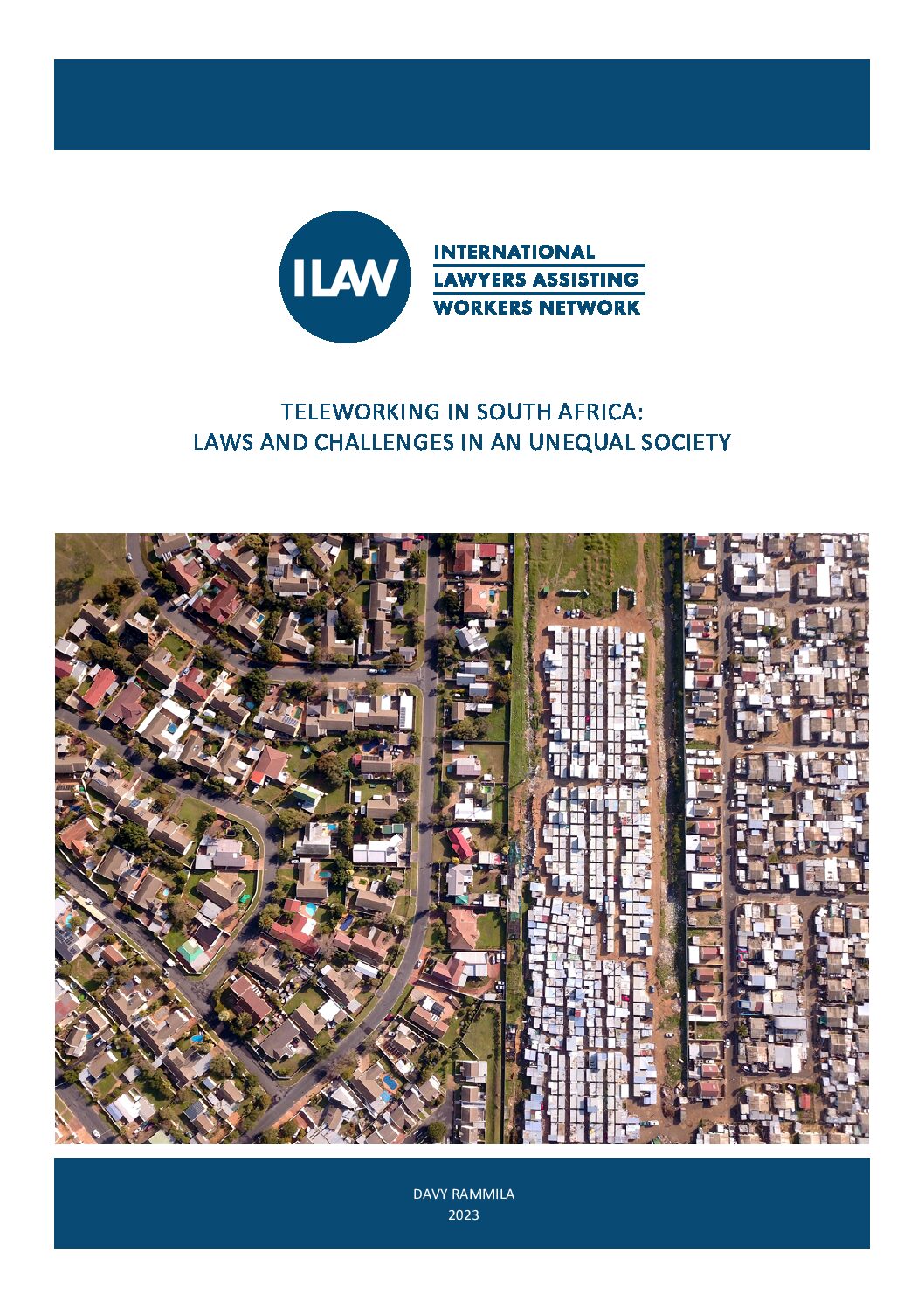
TELEWORKING IN SOUTH AFRICA: LAWS AND CHALLENGES IN AN UNEQUAL SOCIETY
The ILAW Network is pleased to release reports on the regulation of telework in Mauritius and South Africa. The reports examine the impact of telework on a range of worker rights topics, including the regulation of atypical work, access to health and safety measures,...
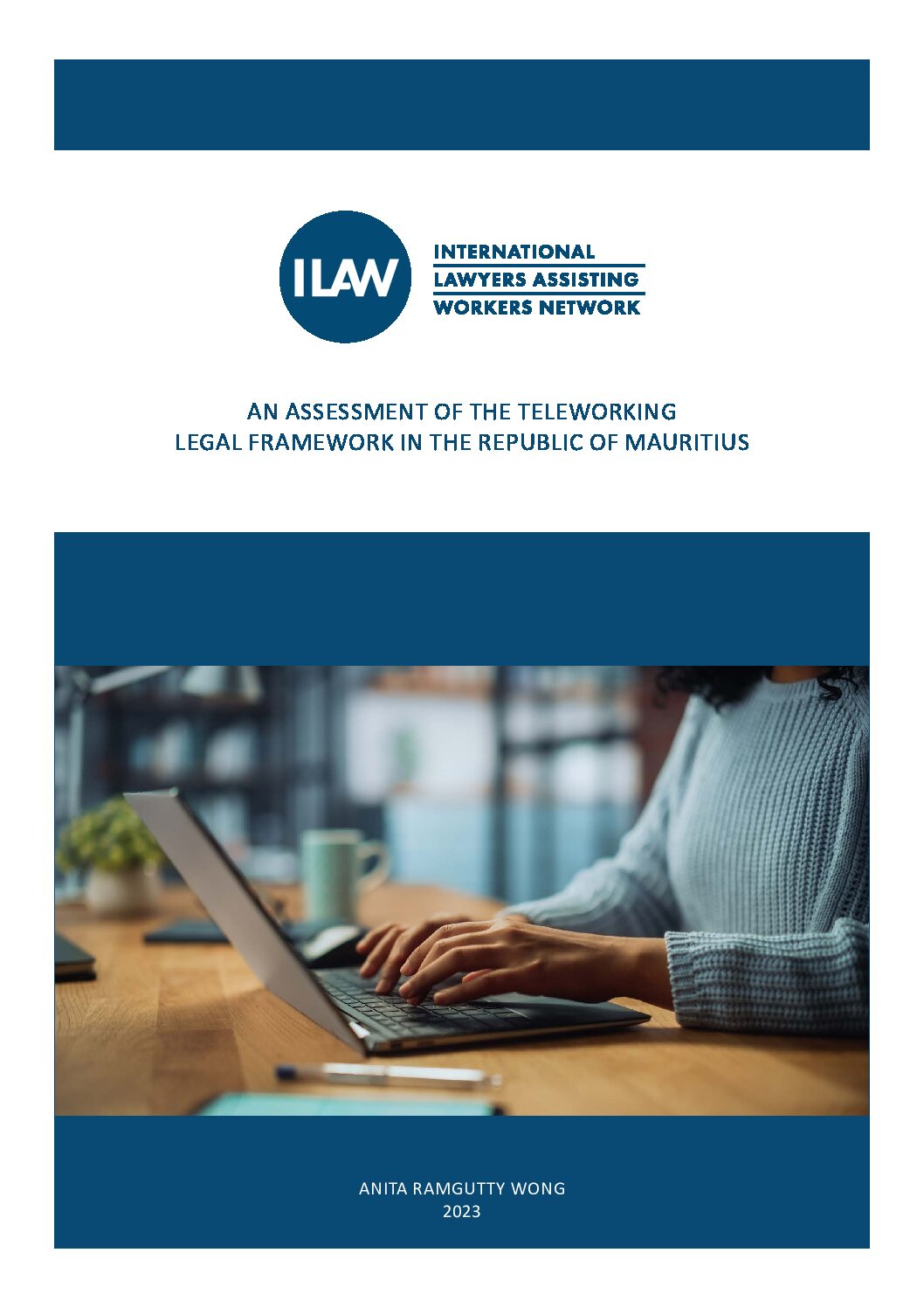
AN ASSESSMENT OF THE TELEWORKING LEGAL FRAMEWORK IN THE REPUBLIC OF MAURITIUS
The ILAW Network is pleased to release reports on the regulation of telework in Mauritius and South Africa. The reports examine the impact of telework on a range of worker rights topics, including the regulation of atypical work, access to health and safety measures,...
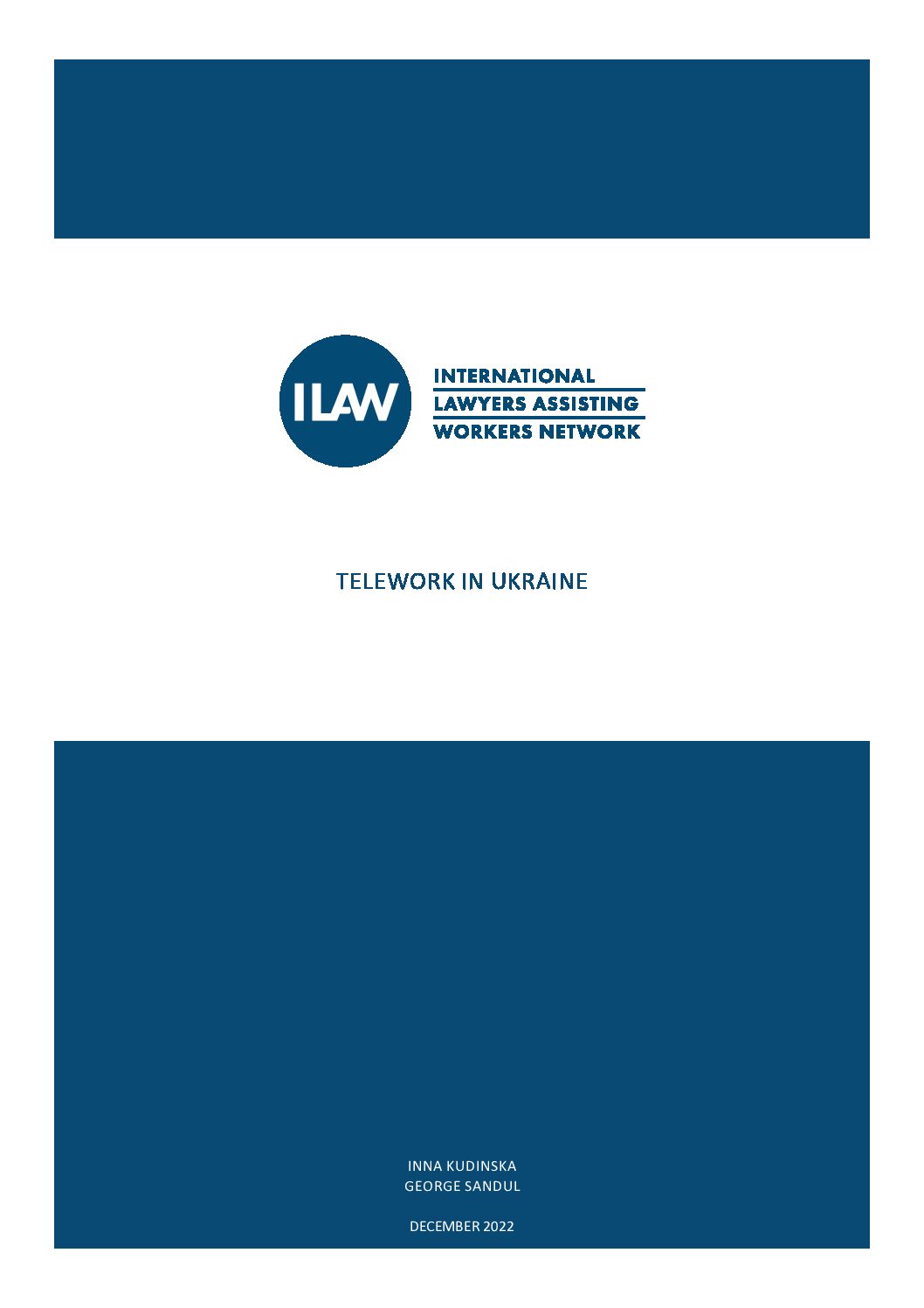
TELEWORK IN UKRAINE
The ILAW Network has undertaken a research series on telework in Europe and Central Asia. National reports examining the regulation of telework in Moldova, Poland, and Ukraine examine the impact of telework on a range of worker rights issues, including work hours and...
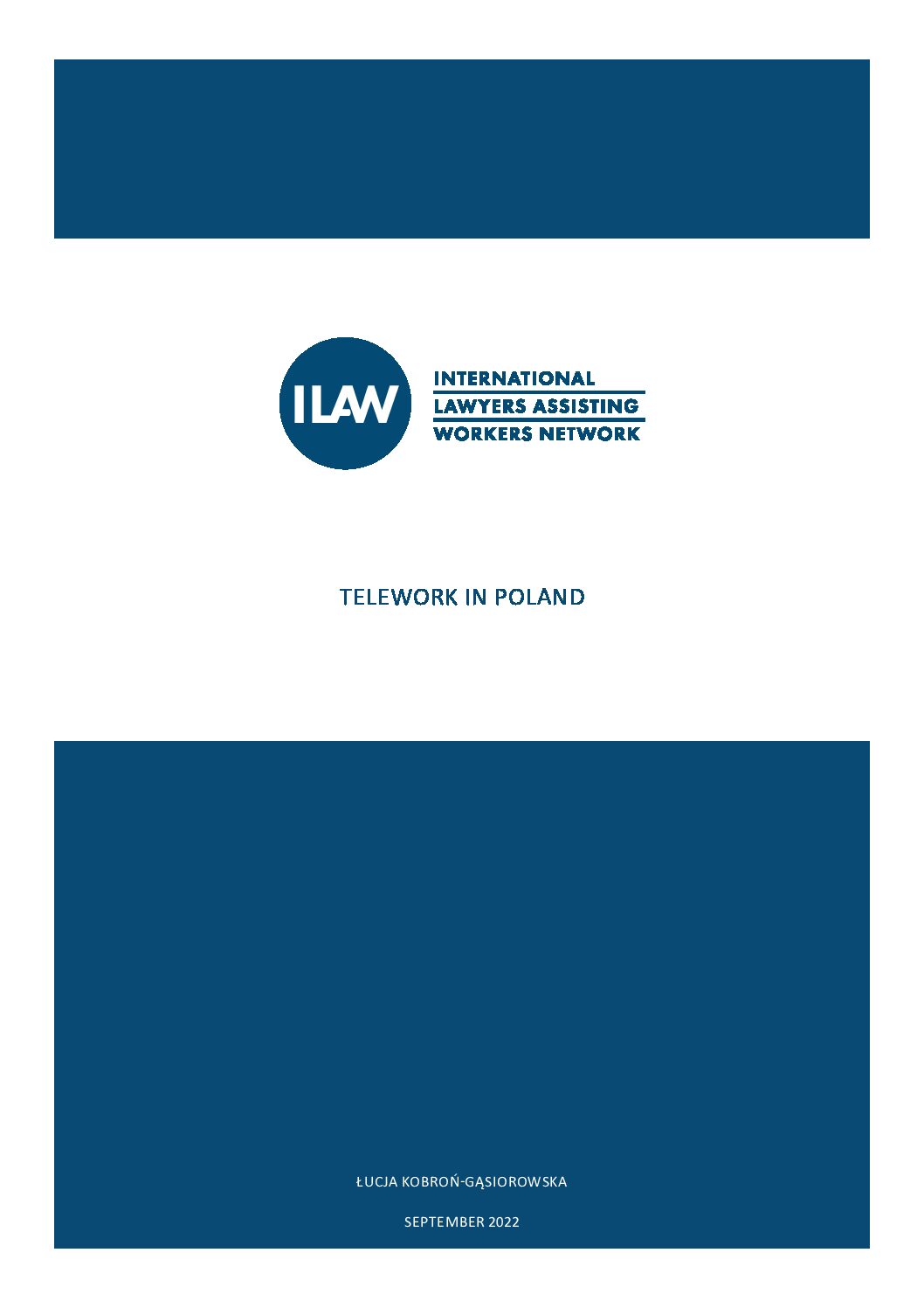
TELEWORK IN POLAND
The ILAW Network has undertaken a research series on telework in Europe and Central Asia. National reports examining the regulation of telework in Moldova, Poland, and Ukraine examine the impact of telework on a range of worker rights issues, including work hours and...
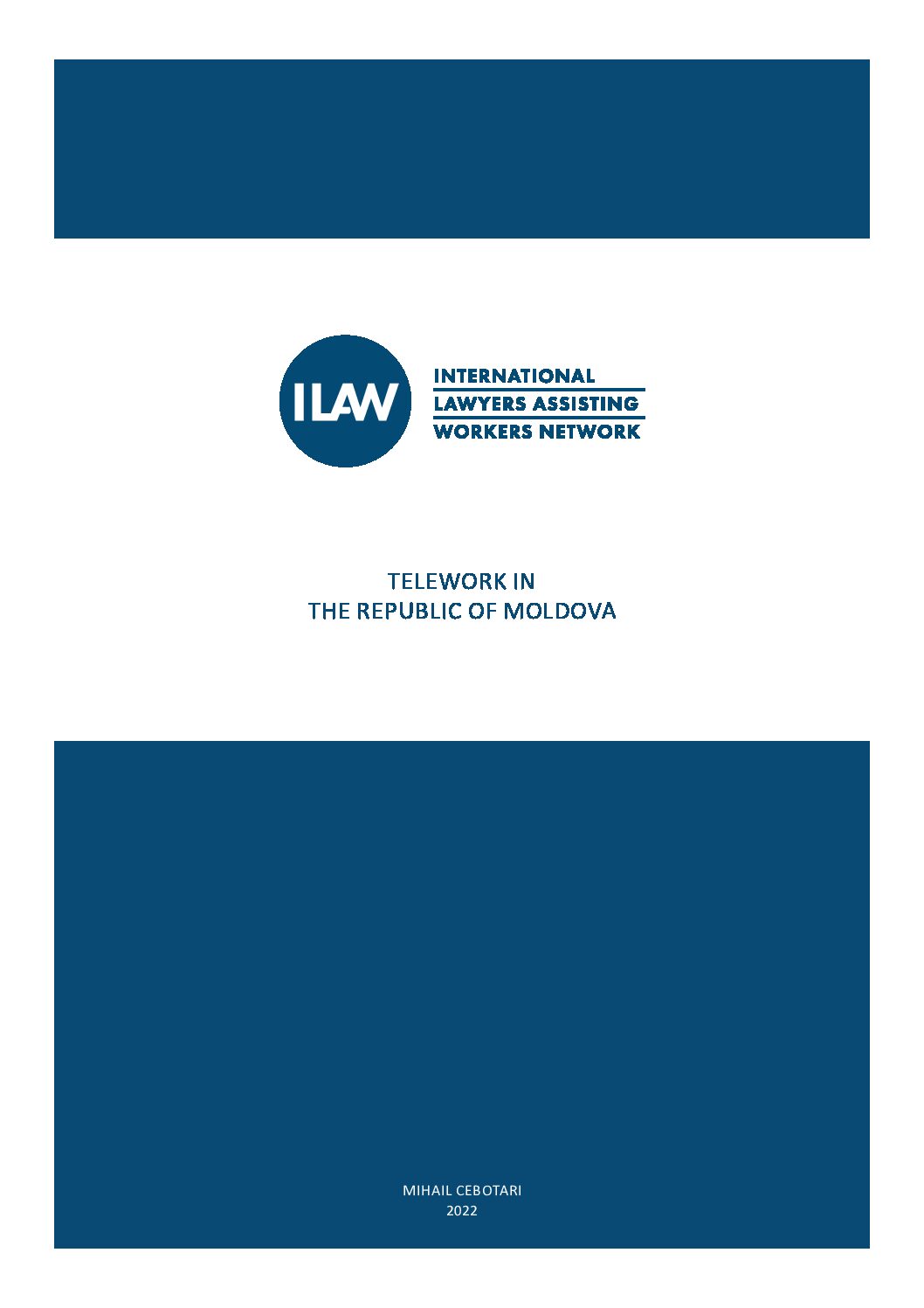
TELEWORK IN THE REPUBLIC OF MOLDOVA
The ILAW Network has undertaken a research series on telework in Europe and Central Asia. National reports examining the regulation of telework in Moldova, Poland, and Ukraine examine the impact of telework on a range of worker rights issues, including work hours and...
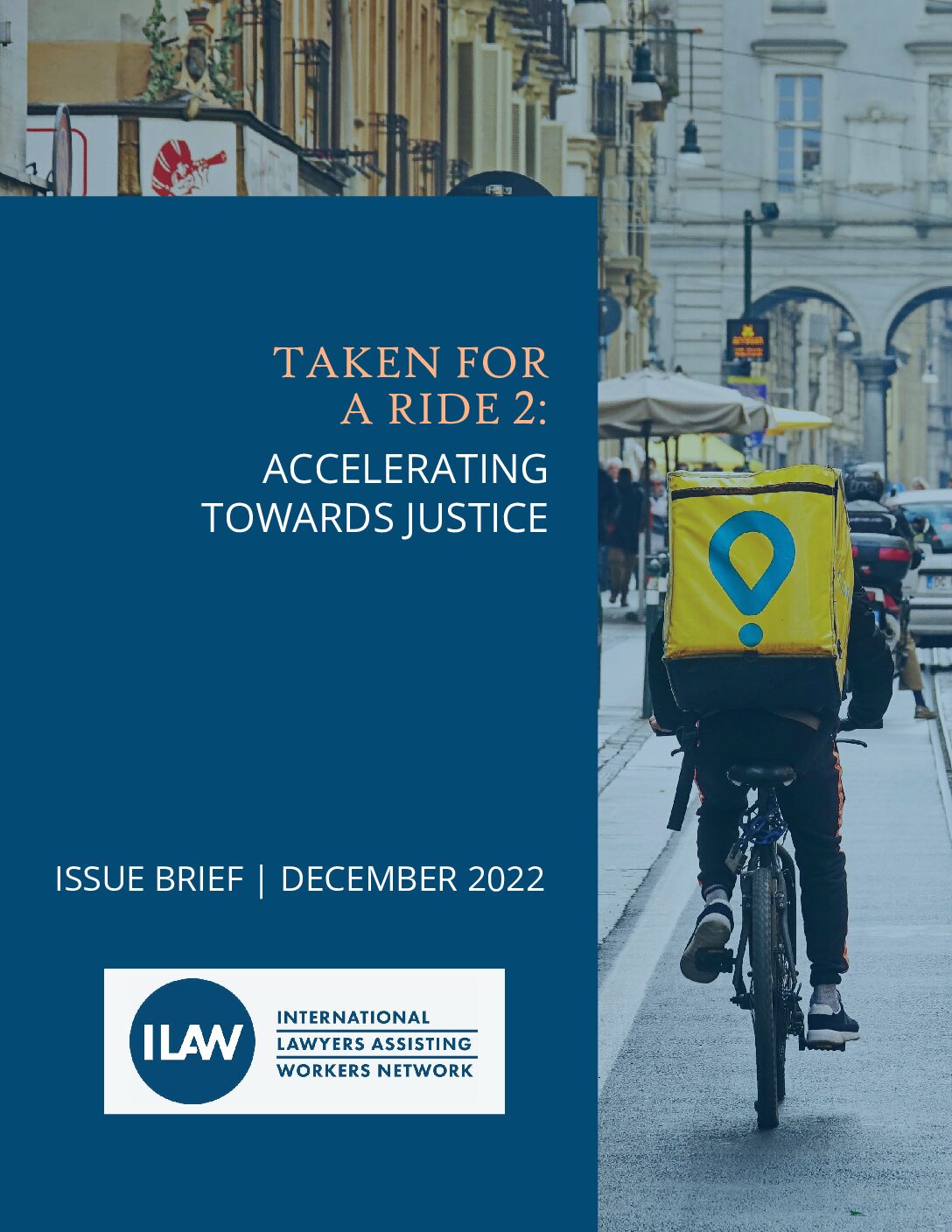
Taken for a Ride 2: Accelerating Towards Justice
This report is an update to the original Taken for a Ride Issue Brief, released in March of 2021. Download it in English or Spanish.

